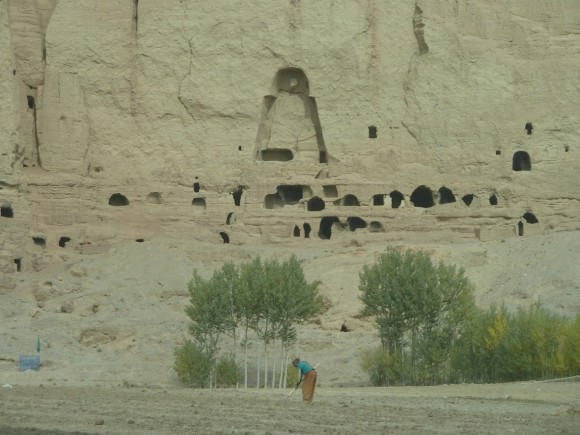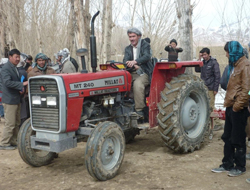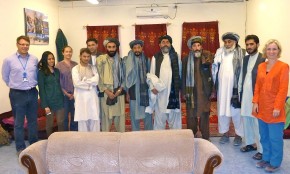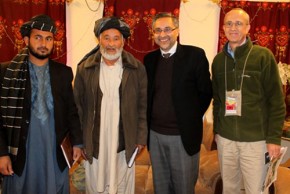As I mentioned in my last blog post, I recently travelled to Bamyan and Uruzgan to see whether Strengthening Provincial Administration and Delivery (SPAD) – a UK/Denmark funded programme - can make a difference there. Bamyan is a province in the centre-west of the country and famous for the monumental Buddha statues that the Taliban sadly destroyed in 2001. It is a beautiful province with lots of potential for tourism. It has azure blue lakes, majestic mountains and great cultural heritage, evidenced by the recognition of UNESCO.

At the same time, it is a poor province: over half the population lives below the poverty line, compared to a third nationwide. Only one in five adults can read or write and just 14% of households have access to safe drinking water (National Risk and Vulnerability Assessment).
It was great to see during my visit that both government and elected officials are keen to improve the situation through the funds that SPAD provides. We heard how a relatively small amount of money can have a big impact which includes building wells or allowing government officials to travel around and inspect schools. We explained how the money will get to the province, starting by local people deciding on the most important priorities. This means people can also hold their government to its promises. It was great to discuss the programme with Habiba Sarabi, the only female governor in Afghanistan.

While in Bamyan, we also met the beneficiaries of the UK and the New Zealand agricultural programme. Farmers explained how pleased they were with the faster harvesting of potatoes thanks to new tractors. Overall, the production of potatoes (Bamyan potatoes are now famous across Afghanistan) and wheat has doubled in the last few years. Read more about this project here.
I also travelled to Uruzgan, a remote and mountainous province, bordering Helmand and Kandahar, which is equally poor. Only 1% of women can read or write, and no children under two years have been vaccinated. Almost all children between the ages of six to 15 work, compared to every fifth child in the rest of Afghanistan.

In Tirin Kot, the capital, we met a large number of people including district governors and their deputies from three remote districts. They gave us a fascinating insight into their daily challenges, such as not having funding to buy stationery for their offices. Everyone we spoke to was eager to improve the situation and do their job better.
All these meetings helped me understand local conditions better, and that helping the government provide better services to the people is the right thing to do. My colleagues have since been back to both provinces and seen that government officials have met with local people to come up with plans for how to best use their budget, with the help of the Independent Directorate of Local Governance.
There is a lot of enthusiasm for the planning. Once this is complete and funds start to flow, we will see the impact, just like in Helmand!


1 comment
Comment by Baktash posted on
Dear Christa
From my point of view, it was outstanding visit of both provinces, hope every things change in you next visit to there.
Best Wishes
Baktash